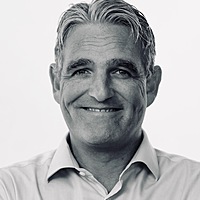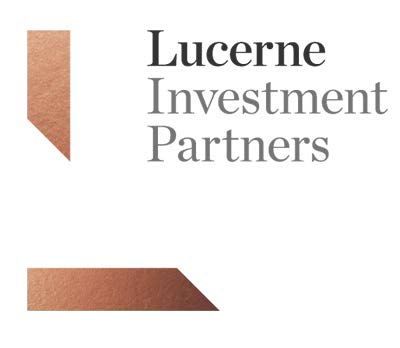Childcare 2.0: The tactical lessons of investing in early education

In the third video in our series with Anthony Murphy, the Lucerne Investment Partners portfolio manager identifies two operators in the childcare sector, one in Australia, the other in the US. Both of these have adopted unique tactical approaches to providing high-quality early education, and both focus on issues to do with location (and more) – but in very different ways.
The former adopts a business growth strategy underpinned by sourcing premium locations and developing clusters of centres around suburban corridors to take advantage
of economies of scale, waiting lists, staffing efficiencies and pupil waiting lists. The latter - a Montessori operator looking to shape syllabuses around the child's enthusiasms and ambitions - is pursuing a light-touch way to avoid the business becoming too capital-intensive.
To find out the identity of these operators and just why Murphy believes they are well placed to succeed, click the video button (or read the transcript) below.


This transcript has been edited for length and clarity
What opportunities have you found in the childcare sector?
Before we talk about Edge, I think it's worth noting that two of the founding partners of Hill have done this before. This is not their first rodeo in child healthcare. Going back to the late 2000s, two of the founding partners are actually involved in a childcare roll up that was listed on the ASX and even sold to ABC Learning at quite a reasonable price.
Most markets work in cycles. Most markets are cyclical and pockets of that market. So after, I guess, the childcare cycle had played out in mid-2014, '15, these guys saw the opportunity to come back into this space.
And where they've done this well is by buying the asset on day one and building it. So they're not buying a business. They're building that asset in a suburban growth corridor or one step removed from the CBD, and that's really helped them during COVID.
They've been smart about that. You still had childcare centres operating around suburbs and the fringes of the city. But CBDs were shut down.
When you think about actually buying these centres, a huge issue for childcare centres is staff turnover or a staff member calling up at the last moment saying they're sick and can't work. That's a huge problem. So to create efficiencies, you want to build childcare centres in a cluster around each other.
There's a suburban growth corridor. You might put three or four centres within a population of a few suburbs, and that way, you know you can rotate staff through different centres to suit needs even down to that day.
And so from economies-of-scale perspective, that makes a lot of sense for Edge.
What is the Montessori education method, and why are you invested in it?
So, Montessori education is education syllabus invented by Maria Montessori, and it really focuses on getting the best out of your child to leverage against their interests.
Let's just use this, as an example, your daughter comes home one day, she's three years old, from kindy and says, "Mommy, daddy, I want to be an astronaut. I want to fly to the moon and discover the moon. I want be an astronaut."
So being an astronaut or being an astrologer is a passion of hers. Montessori education wants to harness that, and it focuses on them building a syllabus that is specific to your child. When we went to school, it was a Scholastic programme. It was rope learning.
Everybody had the same syllabus, whereas Montessori education is really about building a syllabus around your child to really, I guess, get the best out of your child and enhance their prospects of going into a field of study or employment that they really love and are passionate about.
So the US is quite a progressive market when you think about the US as a whole, a progressive country. They can also be quite cultish in the US.
You think about the different states in the US and different religions they follow, et cetera. And so as a result, we think there's tremendous growth in that Montessori portfolio in the US, and you've seen that with Higher Ground at the moment.
You're also actually seeing in Australia, and we tend to maybe be a little bit more conservative when it comes to education, but some of the syllabuses that have now been actually been encouraged and, should I say, being rolled out across the country actually have a bit of a Montessori bias to them.
And we've even seen that in some high schools in Melbourne and Sydney, where schools as a whole are wanting to learn more about the interests of the child and then building that syllabus around them to get the best out of them and to make sure that they have the best life.
As a result of that, we think it's a thematic because the world is becoming more flexible in how they look at the world are more nontraditional and [inaudible 00:03:35] in the right place, again, for this thematic in early education.
How is Higher Ground gaining exposure to Montessori education?
So when you think about a childcare centre, you've got the business itself, and you've actually got the land itself too.
What Higher Ground is focusing on is actually going into the operating business and rolling their model out or their syllabus out already within that operating entity.
And that's far more attractive to us because let's say Higher Ground does go into a specific centre in, say, Texas in the US and their programme doesn't work or there's pushback or they're not happy with how that centre is running their programme.
We'll, they can exit stage left, whereas if you're actually going into that centre in Texas, you're identifying that centre, you're building that you're own in the land, it becomes quite a capital intensive model.
So it allows you to trial that syllabus or that offering within different pockets of the US. You then add resources and leverage to those sectors that are working and you potentially exit ones that are not working. And that's why we like the capital-light model.
A different type of wealth management
Lucerne is Australia’s pre-eminent independent investment group, providing high net worth investors access to a family office-style service. They allocate to any investment that meets client objectives and they invest alongside you. Click ‘CONTACT’ below to talk with them or visit their website here.
1 topic
2 funds mentioned
1 contributor mentioned

Matt Buchanan is a former Head of Content at Livewire Markets. Matt is an avid investor and a big fan of the Livewire community, which he first joined in 2017.
Expertise

Matt Buchanan is a former Head of Content at Livewire Markets. Matt is an avid investor and a big fan of the Livewire community, which he first joined in 2017.
